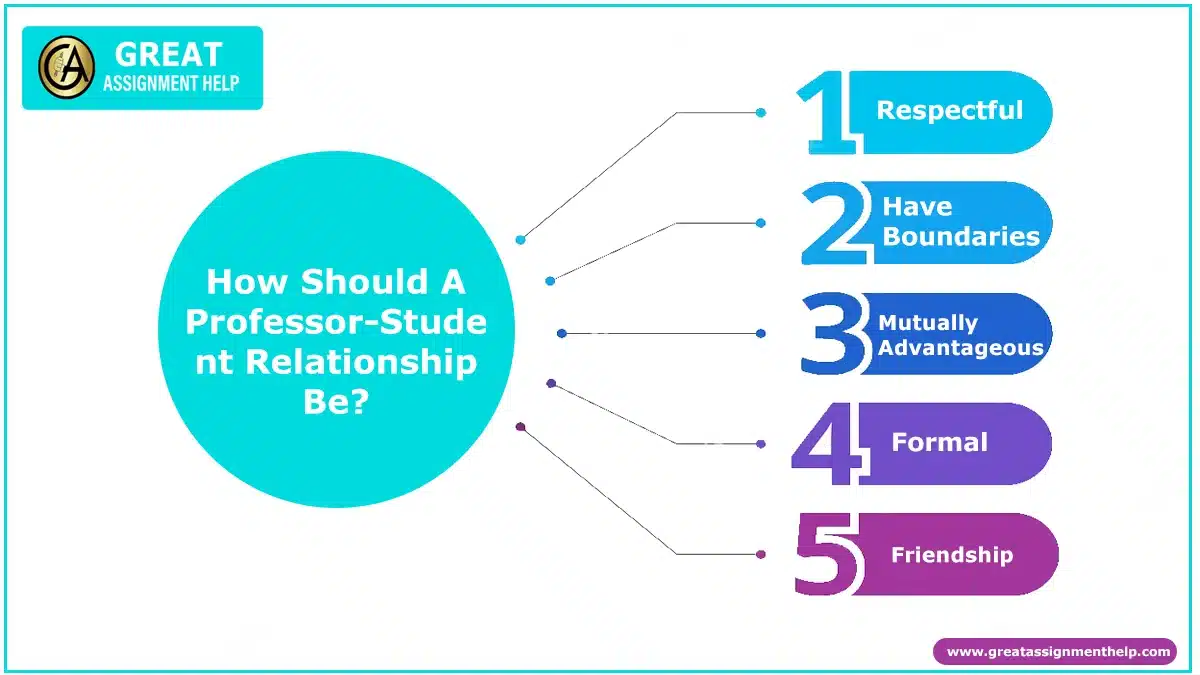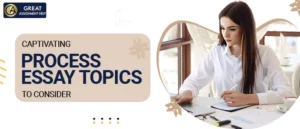“Having been an educator for so many years, I know that all good teachers can do is set the context, raise a question, or enter into a kind of dialogic relationship with their students.” – Godfrey Reggio.
This is the kind of relationship everybody expects a student to have with a professor. But, unfortunately, since time immemorial, universities have been a hotbed of socially unacceptable romantic affairs between professors and students. But are relationships between students and professors taboo?
Most universities prohibit students and professors from engaging in romantic relationships. Besides the age-old prohibition on relationships, moral concerns and complicated power dynamics in dating between professors and students make it a bad idea. If you wonder, “Are relationships between students and professors taboo?” read this blog. Here we have discussed the history of the student-professor relationship, Supreme Court rulings, the university’s action to develop a safer environment for students, and many more such issues.
Professor-Student Dating History
The number of women pursuing higher education in colleges and universities increased in the 19th century. It increased older male professors’ dates with female students.
However, the tide took a different course during the 1980s; the dynamics between students and professors changed. Students did not think about whether relationships between students and professors were taboo or not. Instead, they started a movement to safeguard women from the coercion of male professors. Moreover, after a law was passed in 1986 that allowed schools to be sued on charges of sexual harassment, academic institutions started banning relationships between students and professors.
Student-Professor Relationship: US Supreme Court’s Reaction
In 1986, a case, Meritor Savings Bank v. Vinson, rose. Here, the Supreme Court of the USA gave the verdict that “acts of apparently consensual sex, when involving parties marked by a significant power differential, can be instances of harassment.” It indicated that in any relationship where a power difference exists, advances made by the powerful party could be construed as harassment. It also became apparent that one cannot give proper consent under the influence of someone else.
So, how does it answer the question, “Are relationships between students and professors taboo?” It is a fact that the case of Meritor Savings Bank v. Vinson was not based on the relationship between a student and professor, but the dynamics of power between a superior and a supervisor are the same as those between a professor and a student. Professors have considerable power over a student’s grades, their reputation in front of other teachers, and their prospective openness to opportunities.
You can argue that students will be helpless without their professors. The U.S. Supreme Court calls it a “power differential.” Before the passage of this law, many students appeared to have given their consent to getting into a romantic relationship with a professor. However, it is still unclear how professors obtained that consent.
Since this case in 1986, many universities have made changes in their policies on professor-student dating. Instead of calling it taboo or using superior judgment to move people away from these associations, many universities chose a different path. They put a complete ban on all professor-student romantic associations, whether they seemed consensual or not.
How do University Policies Aim to Create a Safer Environment for Students?
Students and professors would prefer to come to a university if they felt safe in the environment. However, a survey conducted at 27 universities found that “10 percent of female graduate and professional students experienced sexual harassment from faculty members.” Ultimately, this is a matter of safety for both students and professors. A lot of data has been gathered that suggests that students, particularly female students, are vulnerable to sexual harassment at the hands of their professors. The Association of American Universities surveyed students at 27 prestigious universities. It does not require a lot of research to find out incidents where students have been victims of a professor’s harassment, molestation, or something more severe and harmful, whom typically students look upon from a position of trust.
However, one cannot say that professors are always safe. Sometimes students make false allegations about professors or misrepresent a teacher’s intention. It razes an established professor’s reputation to the ground. Even false complaints of sexual harassment and inappropriate remarks made by a student can remove a professor from the university and make him shun other institutions.
Also read: Best Film Research Paper Topics for Students
Dating Policies at Different Schools
All institutes strongly discourage professors from dating students. However, the practical rules differ at every university. For example, many Ivy League colleges completely forbid it. Most Ivy League schools completely prohibit faculty from dating undergraduate students, even if they belong to a different department. For example, Harvard’s FAS policy states that they forbid their faculties from engaging in romantic or sexual relationships with undergraduate students, even if they supervise or instruct the students at present.
Similar policies are followed by all Ivy League institutions like Yale, New York University, Columbia, Stanford, and Duke University. However, the policies of universities like Birmingham Young University are more comprehensive. As per their policy, no one can be involved in a romantic relationship where a difference in power exists. It does not exclusively apply to teachers and professors; teaching assistants are also included in it.
However, if both parties consent to continue the relationship, then they must notify their supervisors privately that they desire to continue their relationship and that it is consensual. So, it is true that they discourage dating, but they don’t prohibit it.
Nonetheless, a few universities are lenient about student-teacher dating relationships. So, you can get no as a reply to the question, “Are relationships between students and professors taboo?” For example, students at the University of Michigan can engage in romantic relationships with faculty on the condition that the professor does not supervise the student. The management of the university thinks that if a faculty member in an advisory role has a romantic relationship with a student; it can give the student an academic advantage. They consider it a “violation of ethics.”
Postgraduate Student-Professor Relationships: A Possible Exception
Most universities discourage faculty from dating undergraduate students. However, some of them don’t consider the relationship between students and teachers taboo in a specific case. These institutions are lenient towards permitting students pursuing post-graduation studies to get involved in romantic relationships with professors. It might be because they feel that postgraduate students are much more mature than undergraduate students. Hence, universities feel it is less substantial to impose strict rules on students’ dating. However, undergraduate students are barred from having a relationship with a supervising professor. Students may have to face strict consequences in the case of a violation of the rules. They can lose their scholarship and get rusticated from the institution, which can impact their academic and professional careers.
Also read: Top Architecture Thesis Topics for Students to Consider
Why Do Professors And Students Engage In Relationships?
When students work closely with a professor or faculty advisor, they develop a long-term connection based on mutual interests. It is normal to develop a bond with someone who shares an equal passion, for example, for writing, poetry, or psychology. Additionally, many students meet in private during the official working hours of the institution to talk about their academics, career paths, and personal interests. These connections have always been crucial to students acquiring future jobs or graduate school ranks.
Developing a connection or friendship with a professor is not a terrible thing. It may be essential to your career, as that individual can introduce you to a prospective employer or act as a testimonial for a graduate school. Relationships can often begin as friendships and grow into something more. If you are a student, be aware of the past of professor-student relationships, and your institution’s rules on professor-student dating will guard you against a great deal of confusion, heartache, and potential grade sabotage.
How a Professor-Student Relationship Should Be?

A professor-student relationship must have these attributes:
Respectful
A professor-student relationship must be respectful. The professor is the most influential figure in the classroom, and students must listen, learn, and follow their directions.
A student who cannot succeed in valuing their professor’s ability can anticipate negative results from their actions. There are multiple ways to show respect to teachers and professors in class.
The professor must care for the students equally. If the professor feels that his power over the student is extraordinary, he should reassess his approach toward the student and his role in their relationship.
Friendship
The camaraderie between a professor and student is the basis of any educational institution. The association between the two is faith, respect, and supervision. A good relationship is essential to the success of both parties.
A professor-student relationship should be based on mutual respect, trust, and care for each other. The instructor is responsible for considering students as people with unique characteristics and needs.
Have Boundaries
The confines that you should draw in this relationship are the ones that permit each party to feel safety, security, and happiness with the other person.
Either party can set these limits, but it will be most effective if both participants have the same opinion about them so that they feel relaxed while discussing their needs.
Mutually Advantageous
The university lecturer and scholar must have analogous goals and interests so that the association can be mutually advantageous. They must be agreeable to helping each other develop their knowledge and understanding because it is essential to developing as a person through education.
A professor with good intent will also assist his or her students by offering them the opportunity to present their work in front of an audience or gain an appreciation for creative assignments they may have worked on. This assists in boosting a student’s conviction and reduces anxiety levels, which can hurt learning.
Formal
A professor-student association should be formal. The connection between a professor and a student is crucial, and it can be very helpful to both parties.
Students gain from the scope to be trained by their professors and grow as scholars, while professors get to educate students who are devoted and ambitious. However, this relationship can only be successful if there is an apparent understanding of what it means to be in a professor-student relationship.
Are Relationships Between Students and Professors Taboo?
No, relationships between students and professors are not considered taboo. Efficient teachers can develop excellent relationships with students. However, they must know the significance of limitations and stay away from abuse. A good teacher will develop strong relationships with their students. They will use their behavior and acquaintance with various subjects to assist students in understanding a concept or solving an issue.
The teacher should be willing to work with the student on issues that are important to them, such as bullying or family problems.
Additionally, to develop a personal relationship with students, teachers can understand when something has gone wrong inside the classroom environment, for example, when students are bullied or attacked by other students or staff members. If this takes place, teachers must take immediate action to stop further harm.
Also read: Excellent Opinion Essay Topics for Students
Ethics To Be Followed in a Professor-Student Relationship
The ethics of a student-professor relationship are based on two simple concepts:
Honesty
Honesty is the most appreciated asset in the professor-student relationship. It is very important for both the student and the professor to be truthful with each other.
The professor should not anticipate that his student will be deceitful because he has to depend on his truthfulness in any situation. The student must rely on his honesty to follow the course and acquire knowledge from it.
Respect
The ideal bond between a student and his or her professor is mutual respect. It also involves sharing knowledge to boost the learning process. This type of association ensures that there is no disagreement between student and teacher and that both parties benefit from each other’s efforts.
How Should Teachers Behave With Their Students?
Here are some guidelines on steering away from inappropriate teacher-student relationships for teachers:
Be a Role Model for students
Be an encouraging role model for students and behave toward them with respect. Students want to observe that you have truthfulness, honesty, and dependability. If you lack these qualities, then think about how students can instill them in you.
Know what drives you as a Teacher
Think about what motivates you. If a student can get a hint of what it is like to be in your position, then they will be more likely to pay attention to your advice and suggestions than someone who does not appreciate the reasons behind your actions or decisions.
Ready for Good and Bad Days
Sometimes students go through tough times in their lives and may not want to converse about them with their teachers at that specific moment.
However, there will be other situations when they wish to talk about what is taking place with them or with others around them who are going through similar issues at the same time they are experiencing these issues themselves, so the sooner they can recognize what is happening with them or those around them, the sooner they can talk about it ahead of time.
Also read: Innovative Technology Research Topics for Students
Conclusion
The question, “Are relationships between students and professors taboo?” is a hot topic, especially considering recent pushes by feminist organizations. It ensures that women’s words are heard regarding sexual misconduct. While this practice was once acceptable, professor-student dating has become taboo, and you would be hard-pressed to detect a university that does not include a long-winded policy about these kinds of relationships. Before getting into a professor-student dating relationship, consider the consequences you would face if it were exposed. These penalties range from academic discipline to court cases and prison sentences.


